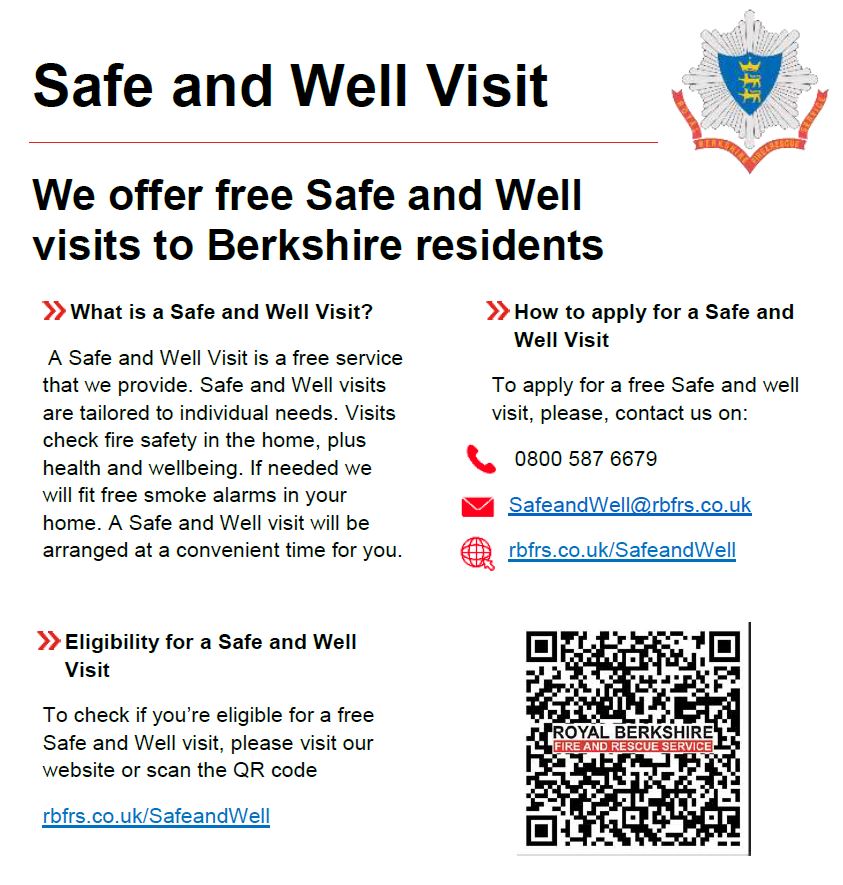Sick Notes
Get a sick/fit note for work or find out about self-certification.
Test Results
Find out how to get the results for a recent test and what to do next.
Vaccinations
Find out about vaccinations, your eligibility and when to have them.
Non NHS Work
Detailed in the below link is a list of our current charges for services that are not provided on the NHS.
Social Prescribing
Through the Caversham PCN, we now employ a Social Prescribing link worker. This is a relatively new role to the NHS.
Physiotherapy
Physiotherapy is a healthcare profession focused on restoring and maintaining physical function and mobility in individuals affected by injury, illness, or disability. It employs a holistic approach, considering the whole person—body, mind, and lifestyle—to promote recovery, prevent future issues, and enhance overall well-being.
Our in house physiotherapist’s may ask you to fill in a form prior to your appointment. If you have been asked to do so, please use the link below:
Physiotherapy Health Questionnaire (MSK) – Balmore Park Surgery
Royal Berkshire Fire & Rescue
Royal Berkshire Fire & Rescue are offering free safe and well visits to Berkshire residents.

Medical Procedure’s & Fear of Flying (Diazepam prescribing)
Medical Procedures
Our practice does not prescribe diazepam or other sedatives for medical or dental procedures, including MRI scans. If you feel anxious about a procedure, please speak to the hospital team or dentist requesting it, as they are responsible for providing appropriate sedation if needed.
We do not prescribe sedatives for the following reasons:
• Safety Concerns: Sedation needs to be carefully managed by trained professionals. Incorrect dosing can lead to complications, including breathing difficulties.
• Monitoring Requirements: After taking a sedative, patients require monitoring to ensure safety. As we are not present during the procedure, prescribing sedation would be unsafe.
• Hospital & Radiology Policies: The hospital or radiology department has procedures for managing anxious patients. If you require sedation, please contact them directly.
If you experience severe anxiety or claustrophobia, we recommend discussing non-medication coping strategies with the relevant healthcare provider.
Fear of Flying
We do not prescribe diazepam for flight anxiety for the following reasons:
• Safety Risks: Sedatives can impair judgment and reaction times, increasing risks during an emergency.
• Health Concerns: Diazepam can increase the risk of Deep Vein Thrombosis (DVT) by reducing movement during flights.
• Legal Issues: Some countries prohibit carrying benzodiazepines, which could lead to legal trouble abroad.
• Limited Effectiveness: Studies suggest benzodiazepines may worsen anxiety over time rather than helping long-term.
Instead, we recommend flight anxiety courses such as:
• EasyJet Fearless Flyer: fearlessflyer.easyjet.com
• British Airways Flying with Confidence: flyingwithconfidence.com
• Virgin Flying Without Fear: Tips For Nervous Flyers | Advice For Nervous Flyers | Virgin Atlantic
Patients who still wish to take sedatives for flying should consult a private GP or travel clinic.
Further Information & References
• NHS Diazepam Information: www.nhs.uk/medicines/diazepam/about-diazepam
• British National Formulary – Diazepam: bnf.nice.org.uk/drug/diazepam.html
• Generalised Anxiety Disorder & Panic Disorder in Adults: NICE Guidelines (CG113): www.nice.org.uk/guidance/cg113
• Stanford University Study on Benzodiazepines & Flight Anxiety: Behav Res Ther. 1997 Sep; 35 (9): 831-41
• Travel Health Pro – Medicines & Travel Advice: travelhealthpro.org.uk
This policy aligns with best practices and national guidelines to ensure patient safety.
Mounjaro (Tirzepatide) Prescribing
NHS England has recently announced that from 23 June 2025, GPs will be able to prescribe Mounjaro (Tirzepatide) to patients to support weight loss. As this represents a new therapy for weight management to be offered in a primary care setting, it requires structured implementation and appropriate monitoring, so it is being rolled out over a 7 year period.
This means that in years 1 to 6 of the phased rollout, there will be many patients who fit the product license and NICE recommendation, but they do not meet the tighter NHS funding criteria. To be eligible for the treatment in year 1 patients must have a BMI ≥ 40 and also have 4 of the following ‘qualifying’ comorbidities: hypertension, dyslipidaemia, obstructive sleep apnoea, cardiovascular disease and Type 2 diabetes mellitus.
We anticipate only a very few of our patients will meet these criteria and we will contact those patients in due course. Meanwhile, our GPs will continue to assist any patients seeking weight management support with advice and, where appropriate, referral to existing weight management pathways.